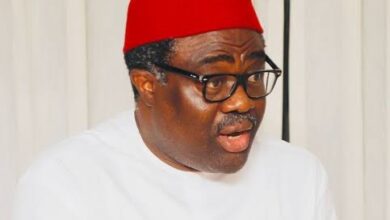New Five Percent Fuel Tax: Another in Tinubu’s Fleet of Indecent Proposals

By: Ifeanyi Izeze
It is very unfortunate that the Tinubu administration carries on as if they are doing business with the Nigerian people and not governance. If not how do explain that operators of the government only see Nigerians as customers rather than citizens and this is why all that runs in their minds is how to extract more money out of the citizenry.
Despite the fierce criticisms and protests, the Government is still going ahead fine-tuning the obnoxious initiative to introduce a new tax/surcharge on Petrol, Diesel, and Aviation Fuel sequel to the enthronement of the new Fuel Tax in January 2026. Is it not obvious now that the Tinubu administration keeps inventing new ways to punish Nigerians?
A surcharge is an additional fee or tax added to the price of a good or service beyond the base price.
Since President Bola Tinubu removed the petrol subsidy on his inauguration day (May 29, 2023), coupled with the subsequent devaluation of the naira, ordinary Nigerians have faced relentless inflation. Petrol prices have risen sevenfold, and the naira has lost over 60 per cent of its value against the US dollar under these so-called economic reforms handed over to him by the World Bank and IMF as prerequisite for his validation.
How can a government be so indifferent to the struggles of its own people? You want to generate revenues at the expense of the lives and wellbeing of the very same people you took office to “Renew their Hope”? Haba Mallam!
Price of petrol averaged N900 per litre nationwide, compared with N187 per litre before Tinubu took office and started his so-called reform agenda.
Food and transportation costs have skyrocketed, with high inflation affecting everything from medical expenses and school fees to telecom services and electricity tariffs.
Now, starting January 2026, Nigerians are expected to face another increase in fuel prices following the introduction of a 5 per cent surcharge on petrol, diesel, and aviation fuel as stipulated in the newly signed Nigeria Tax Administration Act (NTAA) 2025.
The Act which was signed into law on June 26, 2025 forms part of a broader fiscal overhaul that includes the Nigeria Tax Act (NTA), Nigeria Revenue Service Act (NRSA), and Joint Revenue Board Act (JRBA).
Currently, Nigerians pay between ₦890 and ₦1,300 per litre of petrol following the fuel subsidy removal in 2023. The new surcharge will be applied on top of existing pump prices, meaning consumers could pay an additional ₦42.50 per litre, according to estimates.
How can a government be so blatant about churning out and pursuing insufferable policies that are anti-people? Definitely the tax will drive transportation, food, and electricity costs even higher, worsening the economic hardship triggered by earlier initiative- the subsidy withdrawal and devaluation of the naira.
While Nigerians are being taxed to death, there is no demonstrable evidence to show that the humongous funds from internally/foreign generated revenue and local/foreign loans are being utilized to uplift the living standards of the people.
As serially said in the media, imposing this new tax at a time when citizens are already whirling from multiple economic shocks reveals a leadership tone-deaf to the suffering of the people. What kind of leadership is that?
Revenue generation cannot come at the expense of social justice. Fiscal reforms should aim to uplift, not further impoverish, the very citizens the government is meant to serve. Is it not absurd that this government places revenue generation at the expense of social justice?
Without mincing words, the measure feels more like a revenue grab than a genuine climate policy. The five percent fuel tax definitely raises questions about the government’s commitment to easing the cost-of-living crisis in the country.
Is it not this same government that has been claiming that since 2023 the fuel subsidy was removed it has been saving $600 million monthly which has led to 40 percent increase in FAAC allocations to the states? So why are Nigerians being surcharged further?
The people need to know the truth and not all the propaganda being churned out by this administration on daily basis.
It is easy to say that Nigerian economy grew by 4.6 percent but is that really correct when you compare Nigeria with other world economies in our class? Our GDP in 2022 before Tinubu took over government was $477.4 billion, today we are at $188.27 billion. Are we better off or worse off with these so-called reforms?
Today we are number 5 in Africa where we used to be number one in terms of the largeness of the economy. Elsewhere in the world, United States of America (USA) is the largest in population and also the largest in economy in North America. In Western and Eastern Europe, Germany and Russia have the largest population and also the largest economy in both regions. In Asia, China is there: largest population with the largest economy. In Africa our dear Nigeria indisputably has the largest population but it’s in the fifth position in terms of ranking of the size of national economies in the continent. How do you explain that?
Before we rebased our economy we were far stronger and a larger economy, in fact the largest in Africa. Now the per capita income is about $835 from the $2,140 it used to be. So are we better off or worse off? How can subsidy removal and floating of the Naira be a better option for the country?
How could anyone justify that a new fuel surcharge under the 2025 Nigeria Tax Administration Act (NTAA) could push petrol and diesel prices even higher next year, adding to the strain of the 2023 subsidy removal?
The government should be reminded that while hoping to rake-in about N796 billion annual windfall from this surcharge, the ordinary citizens that are already suffocating under high inflation, food insecurity, and rising transportation costs are going to bear the final brunt of this policy.
As said earlier in an editorial of a prominent national daily, “With Nigerians still grappling with soaring prices, deep economic uncertainty, and widespread hardship, the introduction of a 5.0 per cent surcharge on locally produced and imported petrol and diesel set to take effect from January 1, 2026, under the new tax law, is not only untimely but fundamentally unjust.” This is the truth, the whole truth and nothing but the truth. God bless our dear country, Nigeria!
(IFEANYI IZEZE writes from Abuja and can be reached on: iizeze@yahoo.com; 234-8033043009)
Post Views: 296





